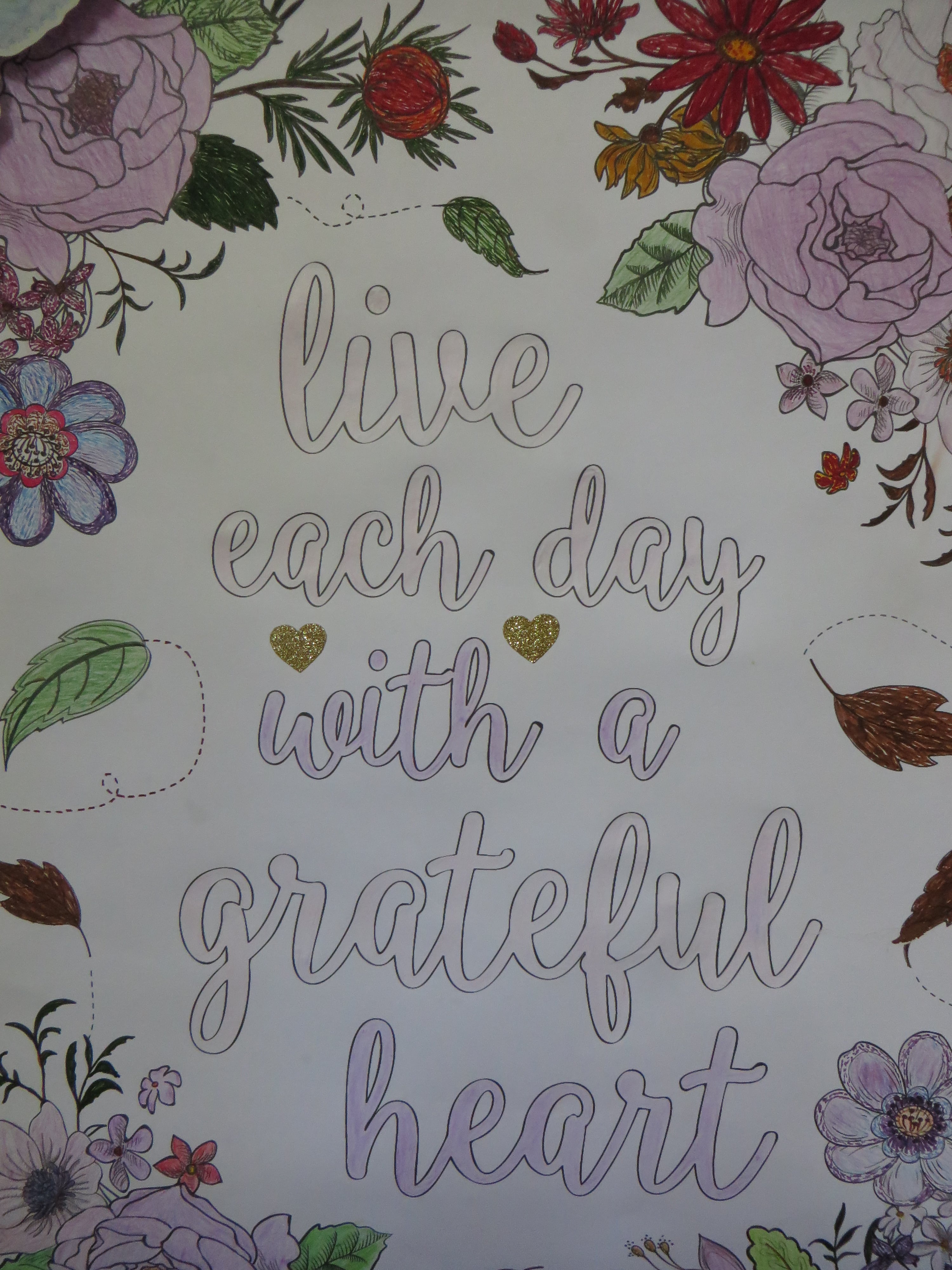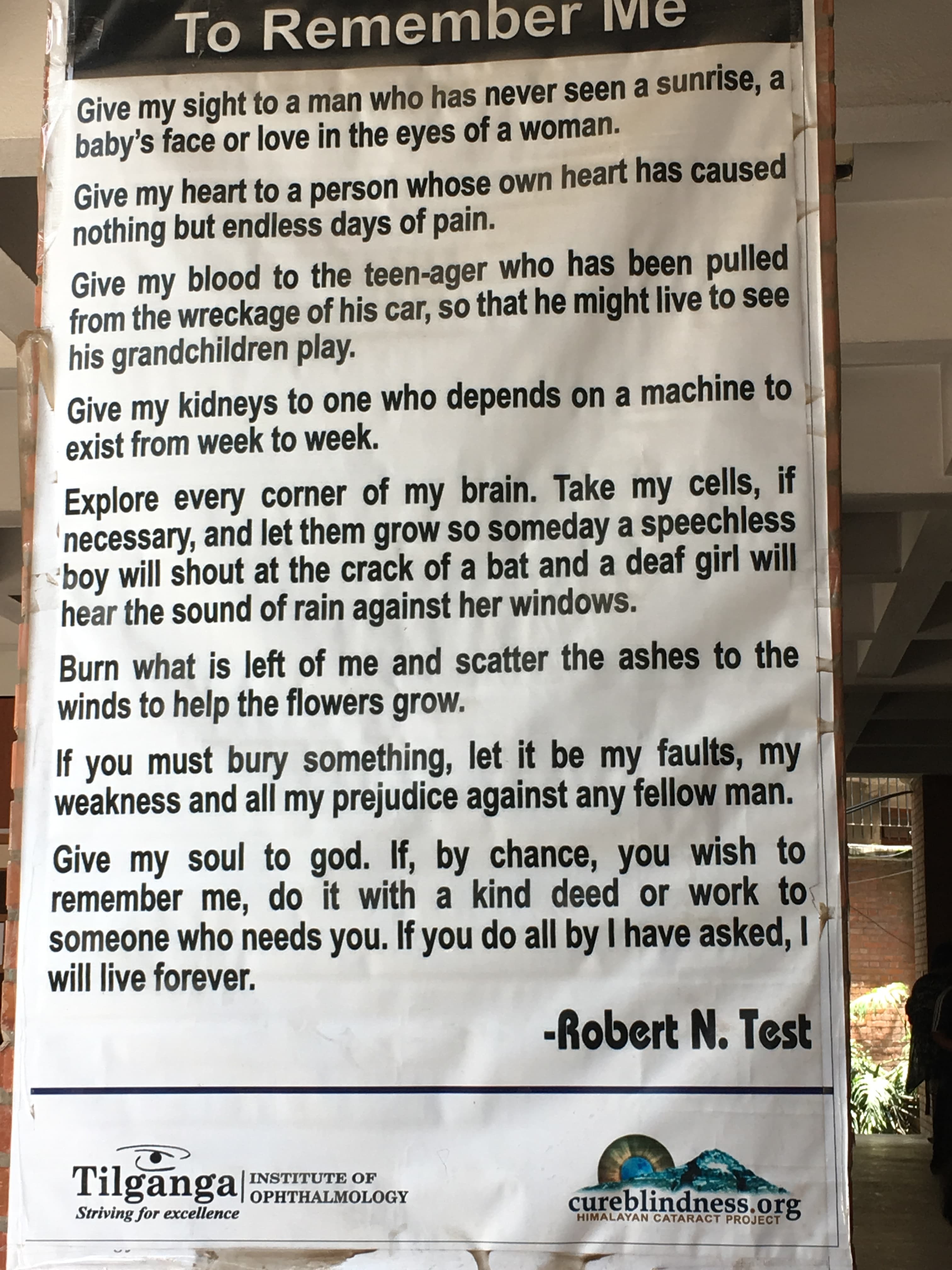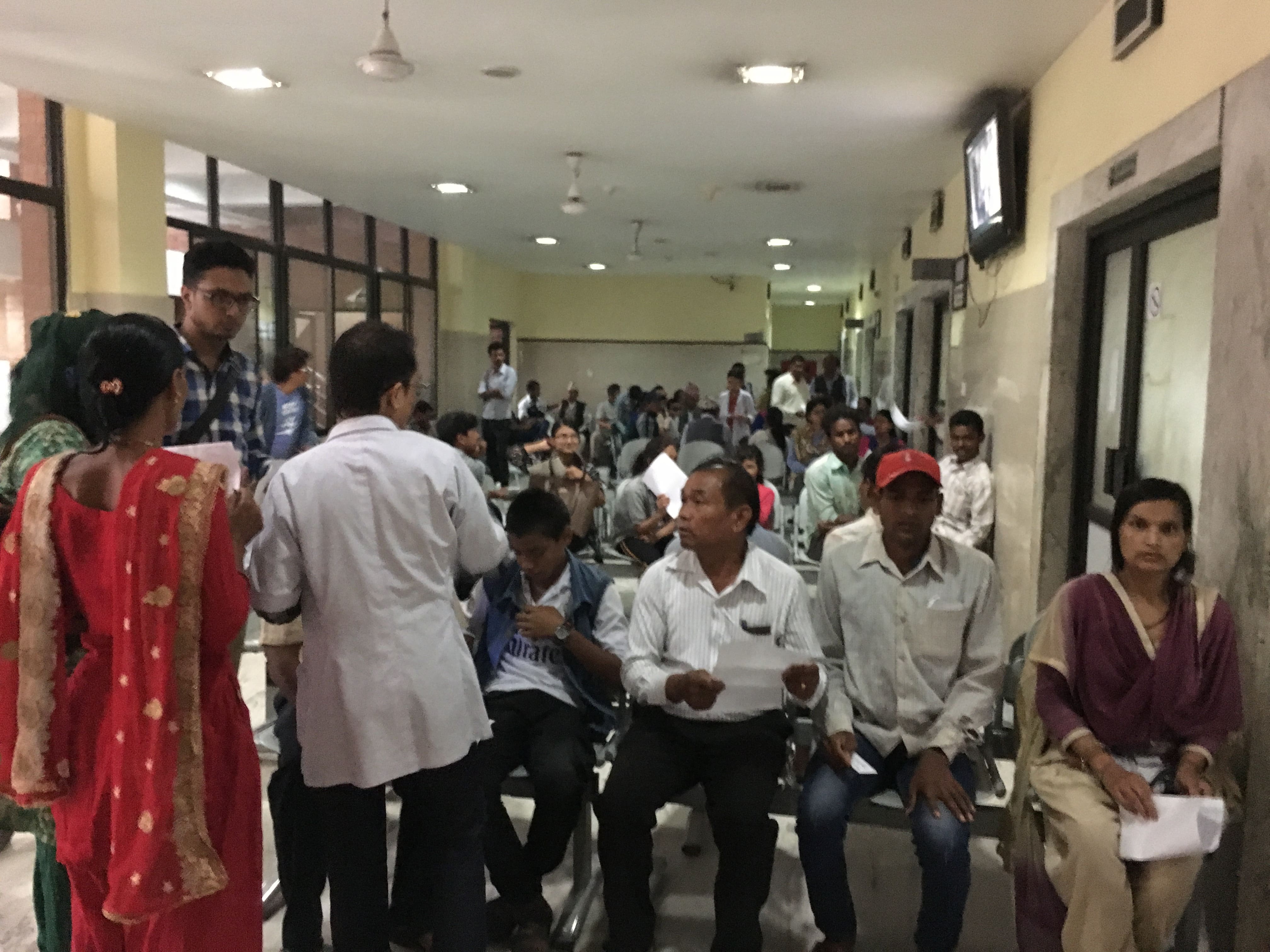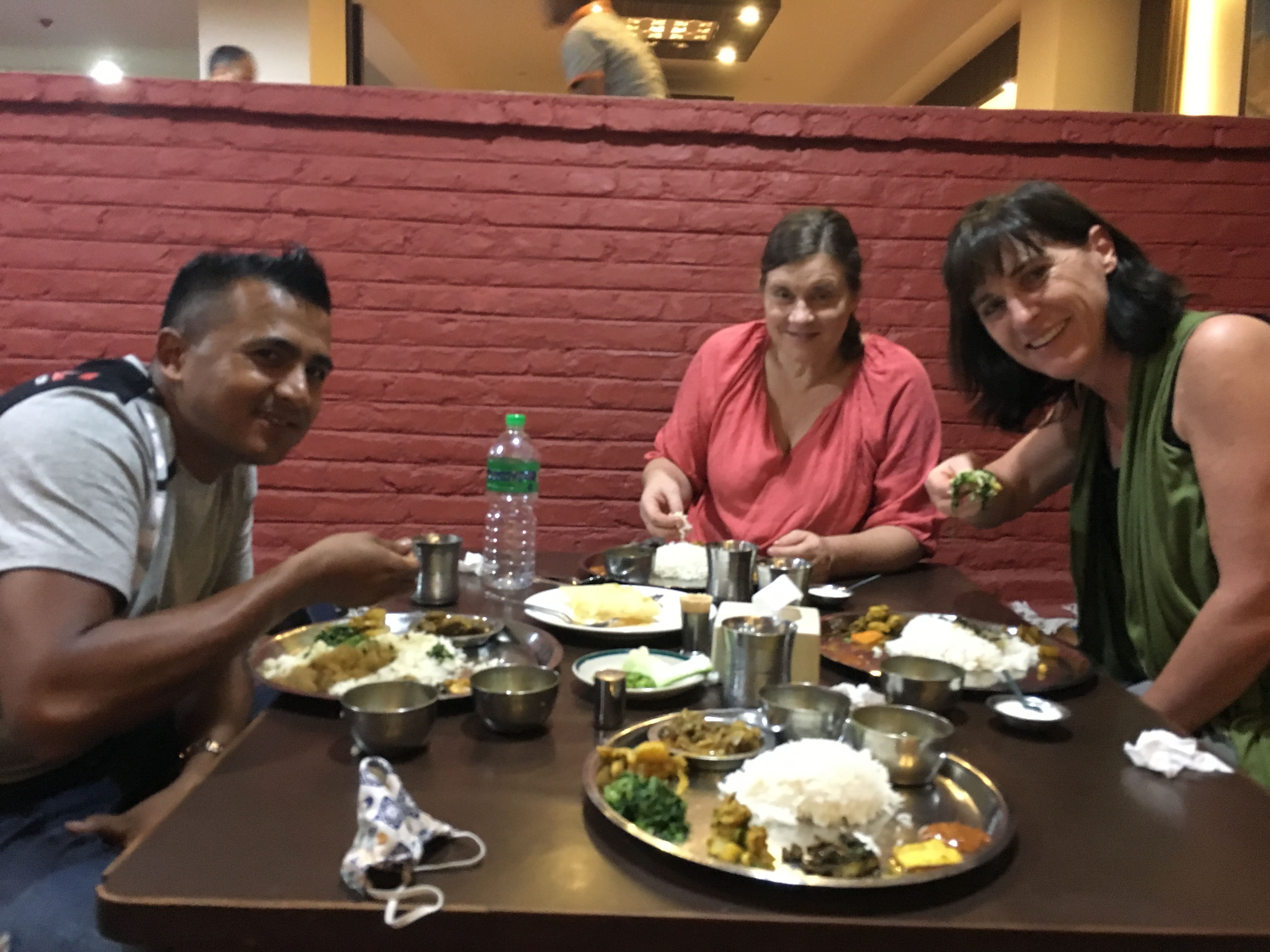
Day 4 - Simple Things We Take For Granted
Essentially as humans we all desire to be safe and protected, happy and healthy and to live with ease and peace in our lives. Today we have been introduced to three inspiring organisations with remarkable people working hard to have a positive impact on the lives of so many. We spent the day visiting the Maiti Nepal Anti-Sex trafficking organisation, the Fred Hollows Eye Hospital in Kathmandu, and the World Vision Head Office and Innovation Lab. We said “Wow, that’s amazing!” and “that is so inspiring!” countless times today. We were totally engaged in the wonderful work of others.

As the day wore on we became acutely aware of how easy it is for us to take the simple things in life for granted: being safe, getting an education, being able to choose marriage or not. The sex trafficking and child marriage issues in Nepal are a world apart from social issues in the western world. MAITI Nepal was born out of a crusade to protect Nepali girls and women from crimes like domestic violence, trafficking for flesh trade, child prostitution, child labour and various forms of exploitation and torture. We visited the centre which is safe haven, a rehabilitation centre and a medical clinic for damaged, degraded and destitute women and children. It has beautiful gardens and pleasant building surrounds to provide an atmosphere of ‘family’ nurture. We visited the on-site school for all the children of victims. We were welcomed into the class room of simply adorable 5-year old girls with tunic uniforms and yellow-ribboned pigtails and little boys with ties. Such a lovely bright classroom filled with the teachings on the wall highlighting respect, dignity and compassion for others.
Simply having good eyesight is something to be eternally grateful for. We had a fascinating and detailed tour of the Fred Hollows Hospital that was started here by this renowned NZ-Australian ophthamologist back in 1993 with the intention to restore vision. Fred got things done. He always pushed for change and, because of that, put in motion a legacy to end avoidable blindness. In his time as a humanitarian and eye surgeon, Fred helped restore eyesight to thousands of people in Australia and overseas. This is a well-designed and beautifully maintained eye hospital, eye bank and lens factory. We were talked through the process of harvesting donor corneas from the deceased awaiting cremation on the banks of the river, at the nearby Hindu temple on the river we visited two days ago. We saw the sophisticated lens-making machines donated by many aid organisations around the world. We felt compassion for the patients lying on beds, queueing for clinics, wandering with patches over their eyes, or having needles and drops gently delivered into their eyeballs.
We should respect the five senses we have, in particular vision. Without vision the world is not what we see.

Through a series of previous connections via Liz and her husband, we had been invited by World Vision Melbourne to deliver a mindfulness session to the aid workers in Kathmandu whilst visiting. This afternoon we called in to introduce ourselves and our Connect with Compassion concept prior to delivering a training session for < 100 Nepalese aid workers next week. We met with Aru, the Lead Manager of the Innovation Lab who showed us their new design process to shred plastic bottles, turning it into plastic wool that can be used to insulate houses, be melted to glue roof tiles and bricks together, and to make plastic medical instruments. Such innovation! On meeting the CEO, Liz, we shared our ideas and explained the vision of Connect with Compassion to embed mindfulness in the lives of individuals and within communities for connection of the human spirit. The project will:
- Use a white scarf as a symbol of purity and shared compassion between people
- Encourage people to be empowered to lead healthier and more balanced lives
- Create a cycle of giving and receiving: firstly to self and then to those in need
- Provide financial support to those living in physical hardship
- Offer mindfulness training to enhance mental health and wellbeing


The World Vision centre in Kathmandu has had an intense response program for the 2015 earthquake. Their workers have been stretched and overworked and stressed as they strive to deliver their humanitarian programs to provide earthquake relief. Our visit was deemed to be very timely as the CEO had just commented with her manager that the workers are just “so tired”. We hope to introduce some meditation skills for finding some stillness and mental rest.
And again, the simple things we take for granted – a roof over our heads. Those living in makeshift shelters will vouch for the importance of shelter to be safe.
In our affluent western lives we should regularly cultivate gratitude for the simple things we often take for granted. Realise that contentment is the greatest of wealth and that no money or things can buy it.

Mandy

